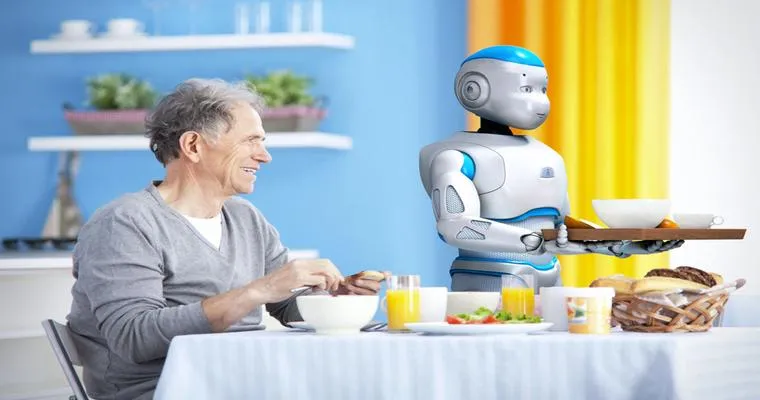As the population ages, the demand for effective "elder care" solutions is becoming increasingly critical. The integration of "robots" in elder care is a topic of significant interest, raising questions about their effectiveness, acceptance, and potential benefits. This article explores the role of robots in providing support for the elderly, examining their capabilities, advantages, and the challenges they may face in this sensitive field.
The Rise of Robots in Elder Care
With advancements in "robotics" and artificial intelligence, robots are becoming more capable and versatile. In elder care, these technologies are aimed at assisting caregivers, enhancing the quality of life for seniors, and addressing the growing shortage of human caregivers. Robots can perform a variety of tasks, including medication reminders, companionship, mobility assistance, and even emergency response.
Benefits of Robots in Elder Care
One of the primary advantages of using robots in elder care is their ability to offer "consistent support". Unlike human caregivers, robots do not tire and can operate around the clock. This availability ensures that elderly individuals receive timely assistance, whether it involves medication management or simply having someone to talk to.
Additionally, robots can help reduce the feelings of isolation often experienced by seniors. Social robots, designed to engage and interact with users, can provide companionship and stimulate conversations, which are crucial for mental well-being. These interactions can improve the emotional health of elderly individuals, helping to combat depression and anxiety.
Enhancing Caregiver Efficiency
Another significant benefit of robots in elder care is their potential to alleviate the burden on human caregivers. By taking over repetitive tasks and monitoring health metrics, robots can free up caregivers to focus on more complex and personal aspects of care. This not only enhances the quality of care provided but also helps reduce caregiver burnout, a growing concern in the elder care field.
Challenges and Considerations
Despite their numerous benefits, the implementation of robots in elder care is not without challenges. One major concern is the "acceptance" of robots by the elderly population. Many seniors may feel apprehensive or resistant to the idea of interacting with machines instead of humans. Therefore, it is essential to approach the introduction of robots with sensitivity and empathy, ensuring that the elderly feel comfortable and supported by technology.
Moreover, there are ethical considerations surrounding the use of robots in elder care. Issues such as privacy, data security, and the potential for social isolation must be addressed to ensure that the integration of technology does not inadvertently harm the very individuals it aims to help.
The Future of Robots in Elder Care
As technology continues to evolve, the future of robots in elder care looks promising. Innovations such as "telepresence robots" and AI-driven monitoring systems are likely to become more prevalent, enhancing the ability to provide personalized care. Furthermore, ongoing research into human-robot interaction will play a crucial role in improving acceptance and usability among the elderly.
Conclusion
In conclusion, robots undoubtedly have a place in elder care, offering numerous advantages that can significantly improve the lives of seniors and the efficiency of caregivers. However, careful consideration must be given to ethical concerns and the emotional needs of the elderly to ensure that these technologies are implemented effectively. As we move forward, a balanced approach that combines human compassion with robotic efficiency will be essential in shaping the future of elder care.





